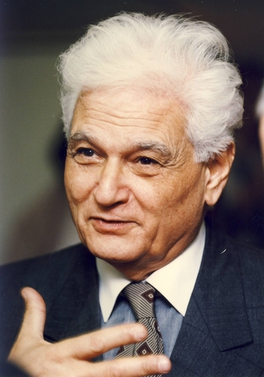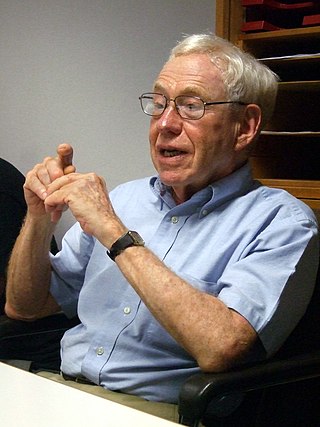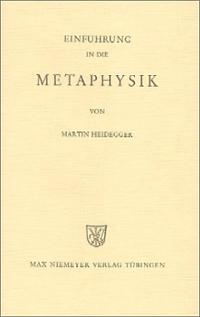Related Research Articles

Martin Heidegger was a German philosopher best known for contributions to phenomenology, hermeneutics, and existentialism. His work covers a wide range of topics including ontology, technology, art, metaphysics, humanism, language and history of philosophy. He is often considered to be among the most important and influential philosophers of the 20th century, specially in the continental tradition.

Jacques Derrida was a French philosopher. He developed the philosophy of deconstruction, which he utilized in a number of his texts, and which was developed through close readings of the linguistics of Ferdinand de Saussure and Husserlian and Heideggerian phenomenology. He is one of the major figures associated with post-structuralism and postmodern philosophy although he distanced himself from post-structuralism and disowned the word "postmodernity".

Hermeneutics is the theory and methodology of interpretation, especially the interpretation of biblical texts, wisdom literature, and philosophical texts. As necessary, hermeneutics may include the art of understanding and communication.

Richard McKay Rorty was an American philosopher. Educated at the University of Chicago and Yale University, Rorty's academic career included appointments as the Stuart Professor of Philosophy at Princeton University, the Kenan Professor of Humanities at the University of Virginia, and as a professor of comparative literature at Stanford University. Among his most influential books are Philosophy and the Mirror of Nature (1979), Consequences of Pragmatism (1982), and Contingency, Irony, and Solidarity (1989).
John David Caputo is an American philosopher who is the Thomas J. Watson Professor of Religion Emeritus at Syracuse University and the David R. Cook Professor of Philosophy Emeritus at Villanova University. Caputo is a major figure associated with postmodern Christianity and continental philosophy of religion, as well as the founder of the theological movement known as weak theology. Much of Caputo's work focuses on hermeneutics, phenomenology, deconstruction, and theology.
"Dasein" is a technical term in the philosophy of Martin Heidegger. Adopted from the ordinary German word Dasein meaning "existence", Heidegger used it to refer to the mode of being that is particular to human beings. It is a form of being that is aware of and must confront such issues as personhood, mortality, and the dilemma or paradox of living in relationship with other humans while being ultimately alone with oneself.

Being and Time is the 1927 magnum opus of German philosopher Martin Heidegger and a key document of existentialism. Being and Time is among the most influential texts of 20th century philosophy. It had a notable impact on subsequent philosophy, literary theory and many other fields. Though controversial, its stature in intellectual history has been compared with works by Kant and Hegel. The book attempts to revive ontology through an analysis of Dasein, or "being-in-the-world." It is also noted for an array of neologisms and complex language, as well as an extended treatment of "authenticity" as a means to grasp and confront the unique and finite possibilities of the individual.

Hubert Lederer Dreyfus was an American philosopher and a professor of philosophy at the University of California, Berkeley. His main interests included phenomenology, existentialism and the philosophy of both psychology and literature, as well as the philosophical implications of artificial intelligence. He was widely known for his exegesis of Martin Heidegger, which critics labeled "Dreydegger".
Kostas Axelos was a Greek-French philosopher.
Henry Corbin was a French philosopher, theologian, and Iranologist, professor of Islamic studies at the École pratique des hautes études. He was influential in extending the modern study of traditional Islamic philosophy from early falsafa to later and "mystical" figures such as Suhrawardi, Ibn Arabi, and Mulla Sadra Shirazi. With works such as Histoire de la philosophie islamique (1964), he challenged the common European view that philosophy in the Islamic world declined after Averroes and Avicenna.

Philosopher Martin Heidegger joined the Nazi Party (NSDAP) on May 1, 1933, ten days after being elected Rector of the University of Freiburg. A year later, in April 1934, he resigned the Rectorship and stopped taking part in Nazi Party meetings, but remained a member of the Nazi Party until its dismantling at the end of World War II. The denazification hearings immediately after World War II led to Heidegger's dismissal from Freiburg, banning him from teaching. In 1949, after several years of investigation, the French military finally classified Heidegger as a Mitläufer or "fellow traveller." The teaching ban was lifted in 1951, and Heidegger was granted emeritus status in 1953, but he was never allowed to resume his philosophy chairmanship.
Martin Heidegger, the 20th-century German philosopher, produced a large body of work that intended a profound change of direction for philosophy. Such was the depth of change that he found it necessary to introduce many neologisms, often connected to idiomatic words and phrases in the German language.
John Sallis is an American philosopher well known for his work in the tradition of phenomenology. Since 2005, he has been the Frederick J. Adelmann Professor of Philosophy at Boston College. He has previously taught at Pennsylvania State University (1996–2005), Vanderbilt University (1990–1995), Loyola University of Chicago (1983–1990), Duquesne University (1966–1983) and the University of the South (1964–1966).
William John RichardsonSJ was an American philosopher who was among the first to write a comprehensive study of the philosophy of Martin Heidegger, featuring an important preface by Heidegger himself.
Elliot R. Wolfson is a scholar of Jewish studies, comparative mysticism, and the philosophy of religion.
Stephen Mulhall is a British philosopher and Fellow of New College, Oxford. His main research areas are Ludwig Wittgenstein and post-Kantian philosophy.
Dr. Miles Groth is a Professor Emeritus in Psychology at Wagner College who has written on philosophy and psychotherapy.
The Modern Project is a general name for the political and philosophical movement that gives rise to modernity, broadly understood. The modern project begins in the late Middle Ages or the Renaissance. Retrospectively philosophers, scientists, and other historical figures in Western culture can be seen during that period as displaying a greater proclivity to question the givenness of the world — a givenness espoused in classical philosophy and Judeo-Christian revelation — and to assert the centrality of the human mind as the basis for human power. The various ideated abstractions and views associated with the Modern Project include: materialism, determinism (metaphysics), rationalism, empiricism, skepticism (epistemology), utilitarianism, hedonism, moral relativism (ethics), atheism, nihilism, secularism, humanism (religion), individualism, egalitarianism, cosmopolitanism (sociology), capitalism, socialism, communism (economics), progressivism, liberalism, democracy, constitutionalism, and nationalism (politics).

Introduction to Metaphysics is a revised and edited 1935 lecture course by Martin Heidegger first published in 1953. The work is notable for a discussion of the Presocratics and for illustrating Heidegger's supposed "Kehre," or turn in thought beginning in the 1930s—as well as for its mention of the "inner greatness" of Nazism. Heidegger suggested the work relates to the unwritten "second half" of his 1927 magnum opus Being and Time.